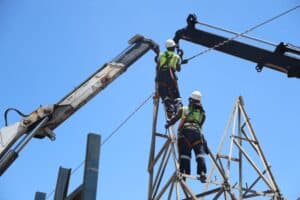Nothing quite screams 'Third World basket case' like outbreaks of typhoid and cholera, which are entirely preventable diseases provided people have access to clean water.

One wonders if our politicians of different stripes will think about taking visiting G20 luminaries on a tour next month of our world-leading water purification and reticulation schemes across Gauteng.
No? We didn’t think so either.
How do people get sick while there’s clean water?
Nothing quite screams “Third World basket case” like outbreaks of typhoid and cholera, which are entirely preventable diseases provided people have access to clean water.
Provided people have access to clean water, perhaps let’s try to hush up stories like ours today about new cases of typhoid being confirmed by laboratories as having originated in the areas of Hammanskraal and Bronkhorstspruit, outside Pretoria…
Two years ago, more than 20 people died in Hammanskraal from cholera because, despite years of empty promises from the various authorities running Tshwane metro – and the main parties are all equally culpable – that they would be supplied with clean, running water. For years, that project has been stalled.
Proper water supply needed
It’s not difficult to theorise why there has been no progress. Until a proper water supply system is put in place, the owners of water tankers can continue to gouge the city – more than R700 million at last count – to supply water to its hapless residents.
Over in Johannesburg, the commercial hub of the country and supposedly the “City of Gold”, the situation hasn’t quite reached the crisis point it has in those Pretoria outlying areas.
Corruption and cadre deployment
But our water supply system is a mess, even as we look at dam levels which hover between 90% and 100%. Corruption and the cadre deployment of useless functionaries have meant that water supply is deteriorating virtually by the day.
And the most that the municipal authorities seem to be able to do is blame residents for using too much water and then place restrictions on the use of hosepipes during daylight hours.
If something isn’t done soon, water will become a bigger crisis than crime.
NOW READ: Fury as Tshwane blows R777m on tankers






